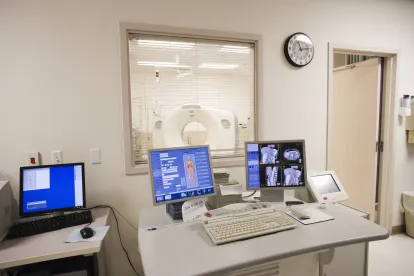New Wisconsin laws were recently enacted that will affect the compliance and risk management functions of Wisconsin hospitals. First, 2013 Wisconsin Act 236 (“Act 236”) streamlined the licensing rules and standards that apply to Wisconsin hospitals. Beginning July 1, 2016, Act 236 will require that Wisconsin hospital regulators utilize the Medicare Hospital Conditions of Participation (“COPs”) as the minimum standards to regulate Wisconsin hospitals and will prohibit regulators from enforcing the Wisconsin hospital standards currently in effect. The intent of this change is to eliminate current inconsistencies between the federal and state standards to make compliance easier and more efficient. Wisconsin hospitals should review and update their policies and procedures for compliance with the updated standards.
Second, Wisconsin joined numerous other states by enacting an “I’m Sorry” law. 2013 Wisconsin Act 242 (“Act 242”) bars from admissibility as evidence in litigation statements, conduct, and gestures of apology and similar expressions made by health care providers to patients and their family members that meet certain conditions. Thus, Act 242 will permit health care providers to have genuine conversions with patients and their family members without fear that their statements, conduct or gestures will be used against them in litigation.
Wisconsin Regulatory Standards and COPs
Beginning July 1, 2016, the Wisconsin Department of Health Services (“DHS”) must use and enforce the COPs as the minimum regulatory standards that apply to Wisconsin hospitals. DHS must also use guidelines adopted by the Centers for Medicare and Medicaid Services (for example, State Operations Manual Appendix A - Survey Protocol, Regulations and Interpretative Guidelines for Hospitals), unless DHS determines that a different interpretation is necessary to protect public health and safety.
Because the COPs will be the minimum standards, as of July 1, 2016, DHS will be prohibited from enforcing many of the regulatory standards promulgated by DHS on the construction, maintenance and operation of Wisconsin hospitals, including Subpart II (hospital management), Subpart III (medical staff), and Subpart IV (hospital required services) in Wis. Adm. Code DHS 124 (“DHS 124”). DHS must promulgate rules to repeal and recreate DHS 124, and may create standards in addition to the COPs if it determines that additional standards are necessary for patient care and safety. If DHS has not yet repealed and recreated DHS 124 by July 1, 2016, the prohibition on enforcement of DHS 124 will be in effect only until DHS 124 is repealed and recreated. Thus, we should expect proposed rules from DHS on a new DHS 124 in the near future.
Other Regulatory Changes Affecting Wisconsin Hospitals
Other significant changes affecting Wisconsin hospitals in Act 236 include the following:
-
Deemed Compliance through Hospital Accreditation. Act 236 provides that hospitals accredited by an approved national accrediting organization (for example, The Joint Commission) are exempt from routine inspections and investigations by state regulators and are considered to be in compliance with all Wisconsin regulatory standards.
-
Hospital Staff Membership and Privileges. Prior law provided that hospitals that admit patients for mental illness treatment could grant psychologists hospital staff privileges; however, the psychologist or the hospital was required to, prior to or at the time of hospital admission of a patient, identify an appropriate physician with admitting privileges at the hospital who would be responsible for the medical evaluation and medical management of the patient for the duration of his or her hospitalization. Act 236 removes this requirement and provides generally that a hospital may afford any practitioner the opportunity to be a member of the hospital staff and obtain hospital staff privileges if the membership or privileges are not otherwise prohibited by COPs or Wisconsin rules and standards and are consistent with the practitioner’s scope of practice.
-
Physicians and Dentists. Prior to Act 236, Wisconsin’s hospital rules and standards provided that nothing in DHS’ promulgated rules or standards governing hospitals shall pertain to persons licensed to practice medicine and surgery or dentistry. This restriction was removed. Thus, physicians and dentists will need to pay attention to new DHS rules affecting hospitals to determine whether they also contain rules affecting physicians and dentists.
-
Hospital Building Codes and Construction Standards. Under prior law, the building codes and construction standards of the Department of Safety and Professional Services (“DSPS”) applied to all hospitals, and DHS could adopt additional standards so long as such standards were not lower than the requirements of DSPS. Now, the standards of DSPS apply only to the extent they are not incompatible with any building codes or construction standards required by the COPs.
“I’m Sorry” Law
Effective as of April 10, 2014, Act 242 will increase the opportunity for sincere and open dialogue and communication—as well as the opportunity for reconciliation—among health care providers, patients and family members when there are problems or issues with a patient’s care.
Under Act 242, any statement, gesture, or the conduct of a health care provider1 or a health care provider’s employee or agent, that expresses apology, benevolence, compassion, condolence, fault, liability, remorse, responsibility, or sympathy to a patient or the patient’s relative or representative is not admissible in any civil action, administrative hearing, disciplinary proceeding, mediation, or arbitration, as long as the statement or gesture is made, or conduct occurs, before the commencement of the civil action, administrative hearing, disciplinary proceeding, mediation, or arbitration regarding the health care provider.
[1] The term “health care provider” includes all of the following entities: hospitals; hospices; nursing homes; county homes; county mental hospitals; the Milwaukee County Mental Health Complex; adult family homes; community-based residential facilities; rural medical centers; and ambulance service providers; as well as all of the following licensed or certified personnel: nurses; chiropractors; dentists; physicians, physician assistants, perfusionists, or respiratory care practitioners; physical therapists; podiatrists; dietitians; athletic trainers; occupational therapists or occupational therapy assistants; optometrists; pharmacists; acupuncturists; psychologists; social workers, marriage and family therapists, or professional counselors; speech-language pathologists or audiologists; massage therapists or bodywork therapists; emergency medical technicians; and first responders.




 />i
/>i

